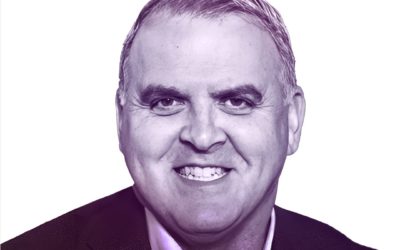“By asking questions and listening, you’re going to understand what your employees need.”
Anthony DeGraw the Director of Partnerships here at Integris and Dr. Ken A. Verni, Founding Director at New Jersey Center of Mindful Awareness, present during a Keep Middlesex Moving, Inc. (KMM) webinar to explain how companies can maintain their culture and mental health during COVID-19.
Listen to your employees.
Anthony: “The number one thing that I can tell you that every leader should be doing in their organization is listening and asking questions. By asking questions and listening, you’re going to understand what your employees need. For instance, at Integris we have people who are employees who are married with significant others that have children. Their experience during this time is completely different than our interns or our apprentices that are fresh out of college that have their own apartment. Those two are two different ends of the spectrum. We’re trying to figure that out and maintain that as we go forward.”
Virtual Culture and Check-ins.
Anthony: “So we started right away with a weekly company happy hour, and that gained a lot of traction across all different types of organizations. But the main thing here was, one, let’s get everybody together after business hours just to see how your day is going. Kind of unwind and really not talk about work but kind of get to know you as an individual.”
Anthony: “This company happy hour actually evolved into a weekly masterclass on different skill sets. So we focused employees’ spouses making masks, we’ve focused on employees’ children who could play the guitar. We’ve had employees who used to be gymnastics focused back in college showing us how to do handstands. We’ve done a lot of workout classes with employees on how to do a proper squat or push up. A lot of this just becomes really fun and exciting. And you start to learn a lot more about your employees and also what they have going on at home.”
Anthony: “Daily and weekly team check ins. We got this from our engineering department on a weekly basis. They do daily check-ins as well to understand the day and where things are progressing, but they would also do a weekly check-in with their team.They would ask their team, from a mental health level, where are you on a 1 to a 10? Are people going down? Are people increasing? Then if they are on a path downwards, how can we then take them one on one and understand what their feelings are like? What can we do to assist them? Is it work-related? Is it personal related? This has allowed us to truly understand where each employee is on a week to week basis, which I think is very important.“
ABCs of Self Care.
Dr. Verni: “Awareness, balance, and connection. Awareness is tuning into our needs, our limits, and our resources that are available to us. So if we’re trying to take care of ourselves, we’re trying to support our health and our well being. Work with our stress in a way that supports our resilience, supports the health of our immune system. Awareness the key.”
Dr. Verni: “Balance. Maintaining that balance between work, play, and rest. I loved what Anthony mentioned, not trying to make up for productivity because you have less time or wind up working more to make up for productivity. So very important to maintain balance. There’s the balance and connection. This whole process that I’ve been describing is a way of staying connected to ourselves, others, and to some sort of sense of a larger purpose or a larger perspective. So that’s the awareness, balance, connection, just kind of touching in on a few things to kind of use as reminders.”
Dr. Verni: “Take care of ourselves in the midst of a challenging circumstances. Protecting ourselves, minimizing exposure to additional stressors. Protecting yourself by saying no to some extra projects, or maybe there’s a lot of Zoom invitations going on or other online invitations and they all seem very attractive and interesting. Perhaps you need to just give yourself some space and a little less screen time.”


